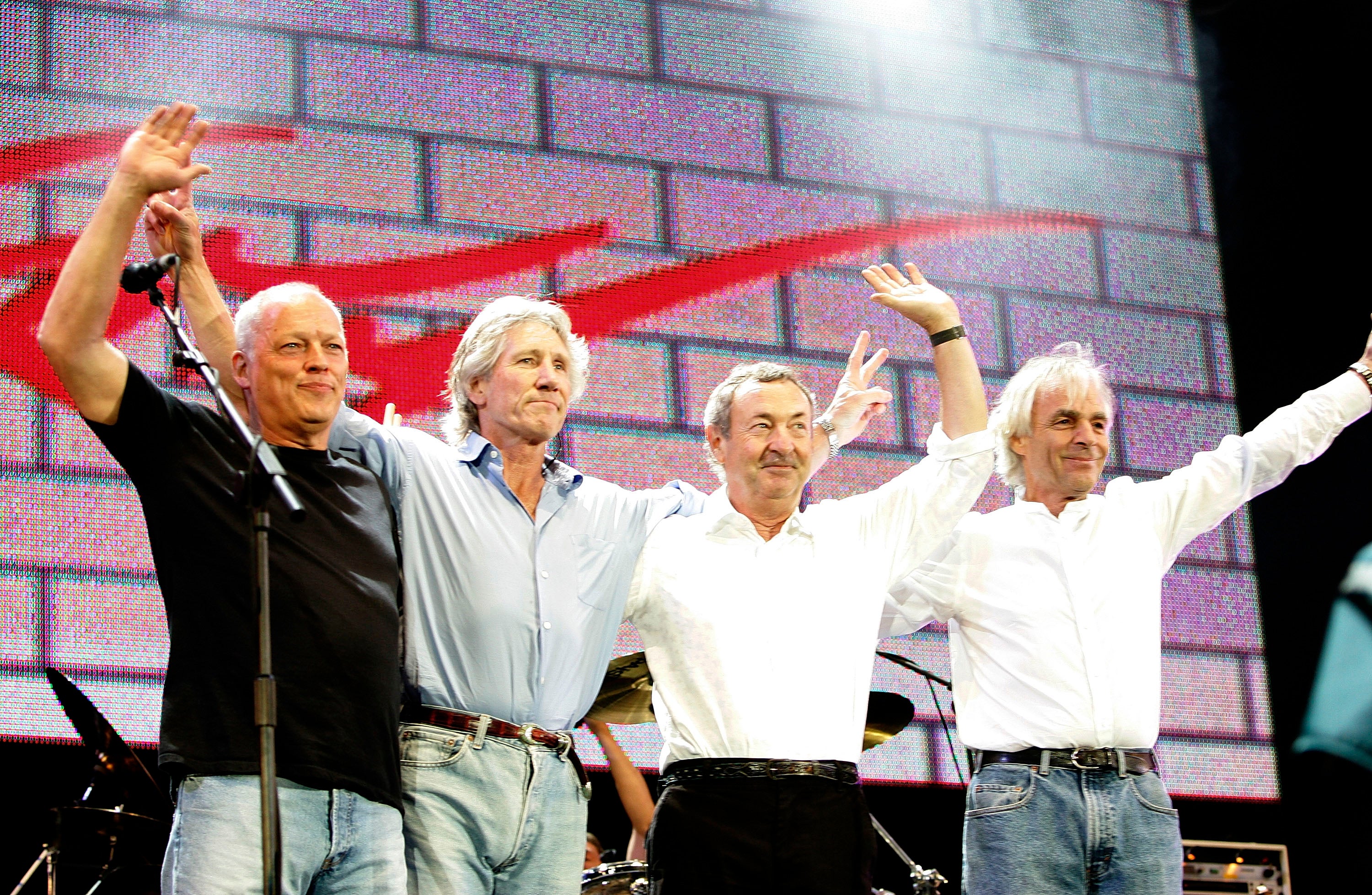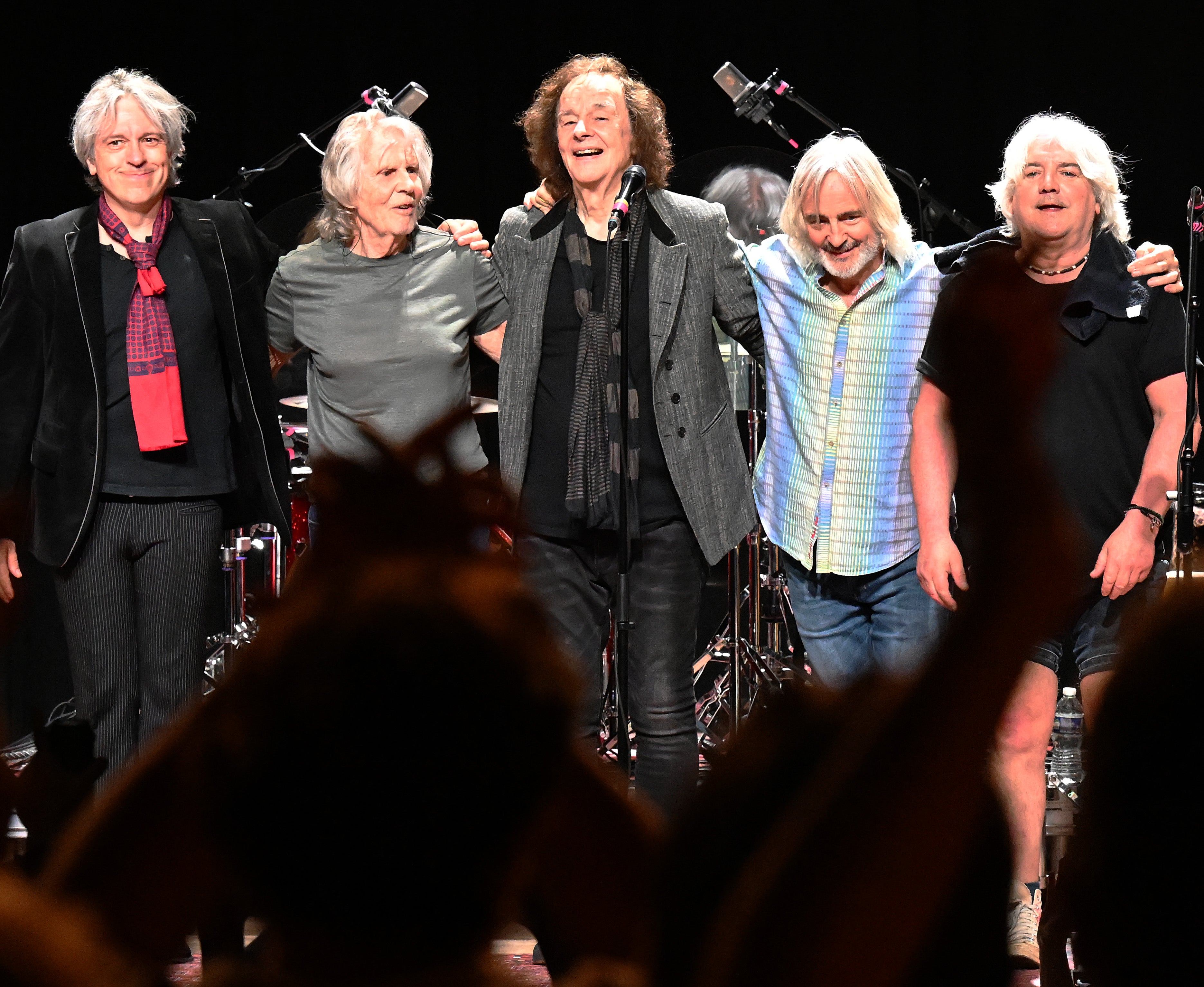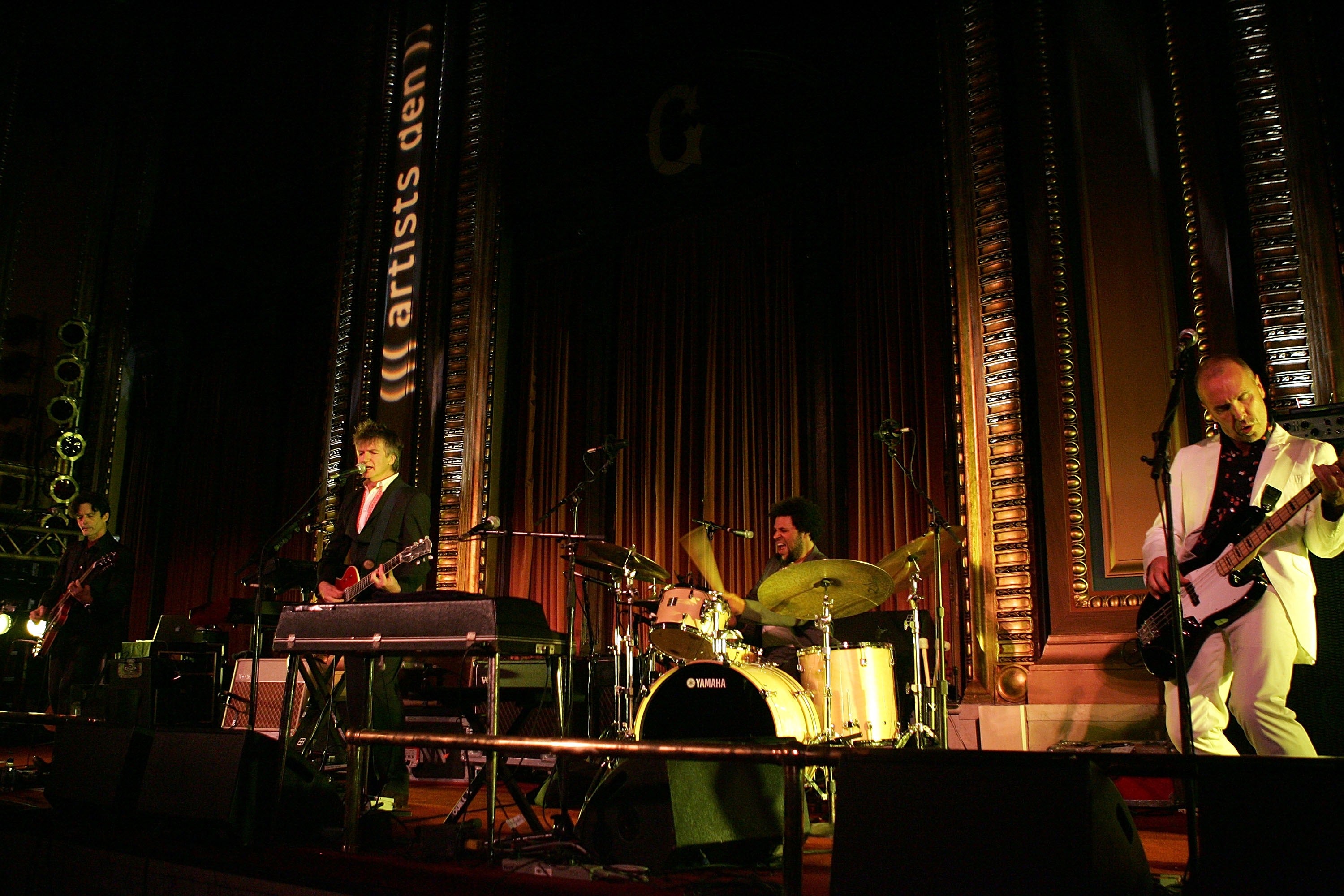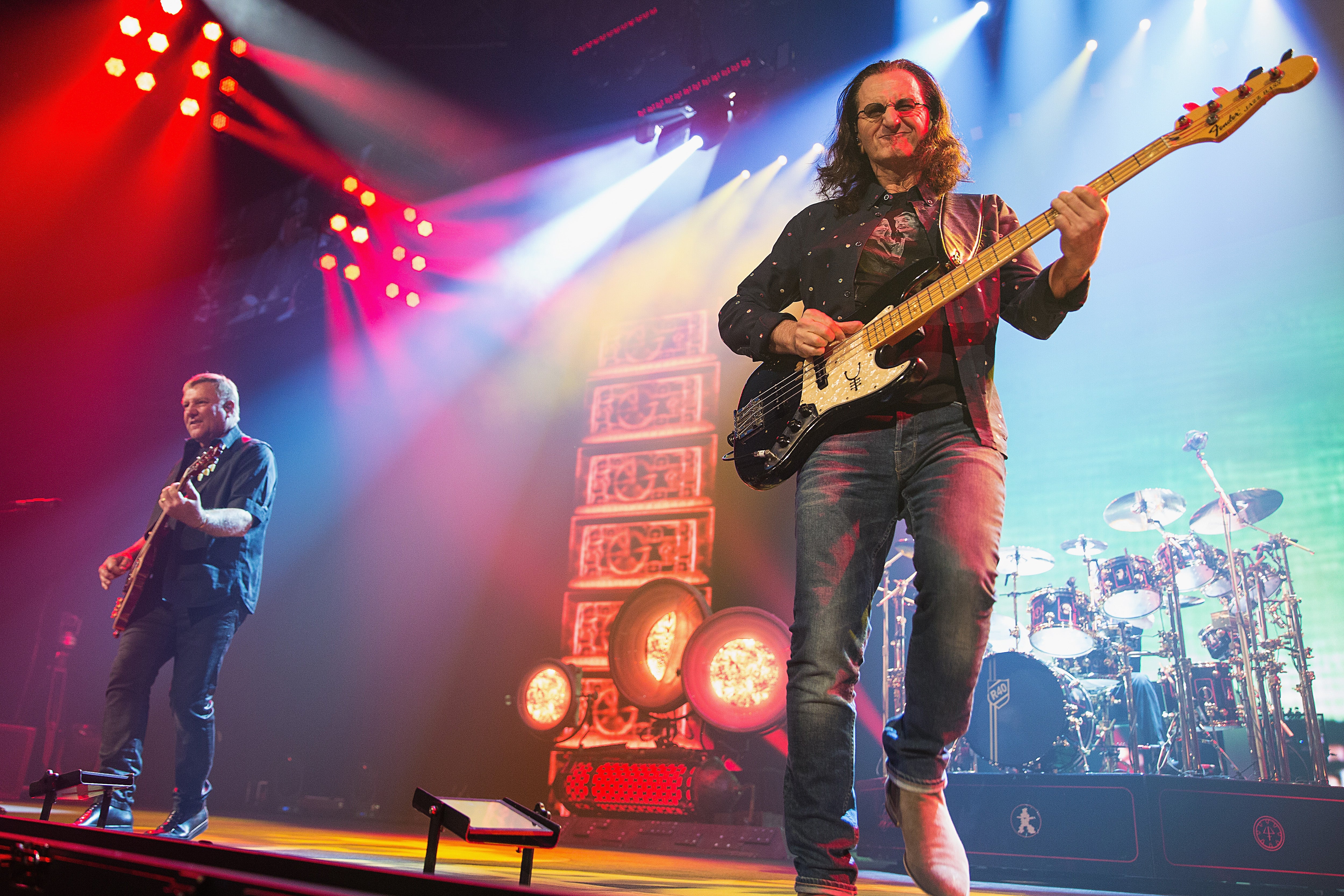Tension, tantrums and tragedy: The bizarre history of the ‘final gig’, from Oasis to Pink Floyd
An unexpected and career-ending illness, a vast communal celebration like Crowded House or an angry, on-stage walk out like The Loft? Michael Hann explores the many different ways that rock bands can reach the end of the road


On 28 August 2009, Oasis were about to take the stage at the Rock en Seine Festival in Paris when everything went pear shaped for the final time. Liam and Noel Gallagher, never the most happily fraternal of bandmates, had been travelling separately between shows, and with just two gigs left on their tour, they had the opportunity for a break, and to forget about each other for a while.
Liam put an end to that.
As Noel later recalled, his younger brother stormed into the band’s tiny dressing room, brandishing a guitar, “and he started wielding it like an axe… And I was like, you know what? I’m f***ing out of here.”
And that, until this autumn, was that. Oasis had played their final gig – or, in this case, had somehow managed to contrive to have a final gig that they didn’t actually play – a very Oasis state of affairs.
The final gig can be many things. It can be a triumph or a disaster. It can be long planned for, or it can happen without anyone realising. It can be a unanimous decision by a band, or it can be something that causes anger and bitterness in those left behind.
For a very lucky few bands it can be a huge showcase in front of millions. Take Pink Floyd, whose four members reunited to play their last ever show at Live 8 in Hyde Park, London, on 2 July 2005. Drummer Nick Mason was the first member of the famously warring band to embrace the idea, suggesting to organiser Bob Geldof that if he got bassist Roger Waters onside, then guitarist David Gilmour would likely follow.

But relations between the two – though not at the low point they are now, with Gilmour accusing his former bandmate of antisemitism, which Waters denies – necessitated a diplomatic role for Mason. “I sometimes felt like Neville Chamberlain, waving a piece of paper rather pathetically,” he says.
The curious thing, though, is that despite whatever tensions existed, Mason’s happiest memories of Live 8 are not of the gig itself. “I was more taken with the rehearsals, how enjoyable that was. The mood was enormously cheerful. I have much stronger memories of the rehearsals.”
As he notes, playing in front of vast crowds was hardly unusual for Pink Floyd, so that wasn’t a problem. Nor was there any fuss afterwards – no one expected the band to reunite ever again. Waters and Mason went for a quiet drink at a nearby hotel, didn’t talk about the show, and that was that. “But it was important we did it,” he says. “We enjoyed doing it, and that’s a lot better than just squabbling about our issues.”
When the beloved baroque-pop band The Zombies played a 60th anniversary gig at the Barbican in London on 7 June this year, no one expected it to be their final gig. In fact it was a triumph – a sold-out hall, Paul Weller joining them to sing “Beechwood Park”. “The tour had gone incredibly well – it felt like there was a new audience appreciating us. It really did feel as though there was a new energy,” their singer Colin Blunstone says.

And then, a few weeks later, Blunstone’s bandmate Rod Argent – the only other remaining founding member, and the principal songwriter – had a stroke, and the curtain abruptly descended on their career. When he heard the news, did Blunstone find himself mourning his band, as well as wishing the best for his friend? “I didn’t think about that to start with. Those thoughts evolve over time. But once Rod had made it very clear he wasn’t going to tour any more, I was free to think: what are my alternatives?”
At 79 years old, Blunstone doesn’t have the fear younger musicians might – that his moment had passed before it had even really arrived. Instead, he’s been able to consider the fact that he still has something to offer. “You have to adjust your expectations of life as time goes on. I often think of this as the autumn of my career, and I’m really excited I’m still in a position to work.”
Blunstone takes pleasure, too, from the revival of The Zombies’ reputation since he and Argent began playing together again in 1999. Now, going out once more as solo artist, he will be performing Zombies songs alongside his own work. “In some ways it’s befallen me to expose those songs to the public, and it’s a responsibility I take seriously.”
If you know a show is going to be the last one, though, you can plan for it as something special, as Crowded House did when they bade farewell outside Sydney Opera House on 24 November 1996, to a crowd estimated at up to 150,000 people. “I was not determined to make it a big show,” says Neil Finn, the band’s leader. “My manager at the time, Grant Thomas, was determined to do it as a big show.” And so original drummer Paul Hester returned, the show was made free to benefit the Royal Children’s Hospital and broadcast live on Australian TV.

The gig had to be postponed from a Saturday to the Sunday owing to heavy rain, but thousands had already turned up, so the band played a long soundcheck for them on the Saturday, and then many, many more turned up the following day. “It was astounding,” Finn recalls. “I didn’t let myself get too deep into thinking about the significance of it. We just wanted to play as well as we possibly could and not get overwhelmed by the occasion. I took mental snapshots – it’s the most spectacular view anyway, from the forecourt of the opera house, but there were hundreds of boats on the water, and people as far as the eye could see.”
And how does one stay engaged in the moment, facing that?
“You become very, very focused – it’s almost like a higher consciousness. There’s some kind of transcendent feeling about it, and that includes the audience. You can get lost in thoughts that are not very useful in that sort of situation.”
You become very, very focused [at a final gig] – it’s almost like a higher consciousness
Only afterwards did Finn come to appreciate the dangers of putting on such a huge show in an impromptu venue – the risks of crushing and dehydration among them: “I only realised later that there was a marathon effort of endurance to be down the front as a hardcore Crowded House fan and get through that day and then still have energy to make the show fantastic.” And he recalls looking up during the set and seeing that a fan was scaling one of the “sails” of the opera house. “It’s etched in my memory, but it is possible I looked back at the video and saw them. No, I feel like I did see them. That’s a pretty dangerous thing to do. But they survived. Luckily, nobody got hurt.”
Ending the band – until they reformed, of course – in such a public way was a good thing, Finn believes. “You can put a full stop on something in a good way. We had goodwill, and because we went out at that point, with a bang, we kept all our goodwill. And when we returned in a different guise a few years later, that goodwill was still there. When bands who are much loved have to navigate their way through a decline, they lose some of their lustre. We didn’t do a big round of farewell shows for the money, so maybe that left a bit of feeling that things had been done right.”
The gig itself was so big that its ending felt like an anticlimax. “All there was, was: ‘What’s next?’ I certainly didn’t think, ‘Oh God, we’ve made a dreadful mistake.’ We’d had a lot of time to think about it, and I was kind of excited about not feeling bound. I was probably having a little reaction to us being on the crest of a wave for quite a while – I didn’t completely buy into it and was slightly rebelling against it.”
The fact remains, though, that the last stand of a group can be a difficult thing to adjust to, especially if it is a band that has occupied an entire adult life. The Canadian prog trio Rush played their final show, at the Forum in Inglewood, California, on 1 August 2015. And even though it had been agreed by the band that this was goodbye, their singer and bassist Geddy Lee found that hard to accept.

“I didn’t 100 per cent know it was our final show,” he told me in 2018. “I suspected it was, and that’s why we were all so emotional. Neil [Peart, drummer] was pretty adamant it was, and he played it like it was going to be the final show. And that’s why he actually left the drum throne and came out and gave us a hug onstage, which he swore he would never do. So he got taken by the moment, too. I guess I was a bit of an optimist: ‘Ah, let them take a break and then there’ll be part two [of the tour]. But nope. I think Alex [Lifeson, guitar] accepted it more as the end. It was a very bittersweet evening. A great show – I thought we really killed it that night, but it was hard to tell because it got really emotional in the last 20 minutes. That’s the first time I ever got choked up at a microphone.”
I thought we really killed it that night, but it was hard to tell because it got really emotional in the last 20 minutes
What Lee had to contend with was the fact that as groups get older, different members have different priorities, even after 40 years together. “The last couple of tours we did were so much fun as players,” he said. “Neil would tell you a different story, because he was largely playing while wincing through pain. But for me, the healthy one, I was having a ball. I’m sure I will play live again one day, but it will never replace that intensity of what a three-hour Rush show was like to perform: it challenged me to my max and that’s rare in this life. It was a physical workout, it was a mental workout, it was a battle of nerves, and you get the benefit of people clapping for you, which in and of itself I don’t miss, but I can’t say I never liked it when it happened. It’s a lovely thing to be greeted by a crowd.”
But what if you can’t enjoy the moment? Forty years ago, The Loft were the young stars of Creation Records, the future home to Oasis, but their singer/guitarist/songwriter Pete Astor had already decided to split the band and keep the name when they played at Hammersmith Palais on 24 June 1984. Even before they took to the stage, guitarist Andy Strickland later said, he wanted to punch Astor’s teeth out.
As it was, Strickland announced the band’s split from the stage, and Astor saw red. “It was awful, theatrical. I walked off mid-song, up the spiral staircase to the dressing room,” he says. But not until he’d turned the vocal improvisation at the end of the song “Up the Hill and Down the Slope” into a screed against his bandmates. “If you’re improvising, you’re drawing on something you cannot sense. And it turned into a manifestation of what I was feeling, which was not positive.”
Astor notes that the rest of the band didn’t speak to him for 18 years. I ask if he tried making contact with them to make amends. He looks up from his coffee, startled at a realisation. “You’ve got me there.” He sighs. “Pathetic.”
Thrilled to announce we’re going on tour next March. Pete, Dave, Bill and Andy with songs new and old. Linktree in bio for tickets. On sale now! pic.twitter.com/pmvQMjNIQp
— The Loft (@TheLoftUKband) October 19, 2024
There is a happy ending there. The Loft did reunite, eventually, and have this year been finally recording their debut album. But even so, the events of 40 years ago still cast a shadow: Astor felt he had to seek the permission of his bandmates before revisiting the subject. Wounds heal, but they leave scars.
Each of these musicians ended up finding their own path – and in some ways finding their way back home. Colin Blunstone is out on tour in November: he’s been a singer for three quarters of his life, and the enforced separation from his musical partner of 60 years is not going to stop him. Neil Finn reunited Crowded House a few years back, and at the time of writing they are just about to embark on an arena tour. Pete Astor had other bands, and made solo records, before becoming a university lecturer, and eventually reuniting The Loft. And while Geddy Lee has not found a new full-time outlet, he has made TV series and written books about music since Rush ended.
And for some people, that final gig can provide a spur. After playing Live 8 with Pink Floyd, and then helping to create a major V&A exhibition about the band, Nick Mason realised there was something missing from his life, and that was playing the music of his former band with other people. So he formed Saucerful of Secrets to play the music the group recorded before The Dark Side of the Moon made them superstars. “It’s not that I missed something specific,” he says – not the luxury hotels or the first-class flights or the oodles of money. “I just missed the playing and interacting with a band.”
The rock band might be the single most dysfunctional entity ever invented. But it’s so, so hard to leave behind.
Join our commenting forum
Join thought-provoking conversations, follow other Independent readers and see their replies
Comments


Bookmark popover
Removed from bookmarks